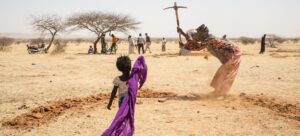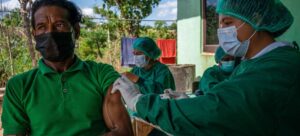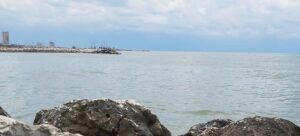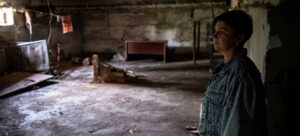year after the Taliban takeover, 17-year-old Mursal Fasihi is still in disbelief that she cannot go back to school. Once a dedicated student, Ms. Fasihi – like all girls of secondary school age – has been unable to return to the classroom due to rules imposed by the country’s de facto leadership.
“It is not right that they are deciding for us, ordering us to go with mahram [a male companion], that we should hide our faces, and stop going to school,” she says, referring to the series of directives that have effectively restricted women and girls from participating in public life.
The last time Ms. Fasihi saw the inside of a school was when she took her final examination for 11th grade in July 2021. A month later, the Taliban swept across Afghanistan, which ended with the fall of Kabul on 15 August.
‘I miss my friends, my teachers and my school’
Some of her friends were able to leave Afghanistan and are now continuing their education overseas. “I really miss my friends, my teachers, and my school. My school was a great place but now I can’t go there,” she says.
Her dreams of becoming a doctor are now uncertain. But her hope will not be extinguished. To fill her time and still feel productive, Ms. Fasihi joined the Youth Peer Educators Network (Y-PEER), a regional initiative led by and for youth, supported by the UN reproductive health agency, UNFPA.
Y-PEER focuses on building young people’s life skills to deal with the challenges that they face. Ms. Fasihi joined a training session last July and is now one of the 25 trainers for Y-PEER in Afghanistan.
The training opened her eyes to various issues young Afghans face on a daily basis. As an educated young woman in the city of Kabul, she had not realized how many girls, especially young girls living in poverty or in remote areas, suffer from negative experiences such as early marriage and adolescent pregnancy.
An unprecedented increase in poverty
The unprecedented increase in poverty, resulting from the economic crisis that came with the Taliban’s return to power in Afghanistan, has brought to the fore discussions about these concerns. Out of desperation, many families have resorted to marrying off their young daughters, offloading responsibility for their care and protection.
“It is sad because how can a child bring another child into this world and raise them?” Ms. Fasihi points out. “At our age, we are just children. We should be studying, aiming for great things. It’s not time for us to get married yet.”
Waiting for the dark cloud to pass
Although Ms. Fasihi’s desire for a formal education is on hold indefinitely, she finds meaning and purpose in being a peer educator for others.
In addition to teaching youth about the harms of early marriage and adolescent pregnancy, she is able to share her hope for a better future.
“When the dark cloud passes, we will see a bright morning,” she told UNFPA.
“I hope that young girls will not give up. It is ok to be scared, it is ok to cry, but giving up is not an option. I hope they will continue learning in any way they can. Inshallah, maybe someone will help us, or the schools will reopen,” she said. “Our bright morning will come.”














